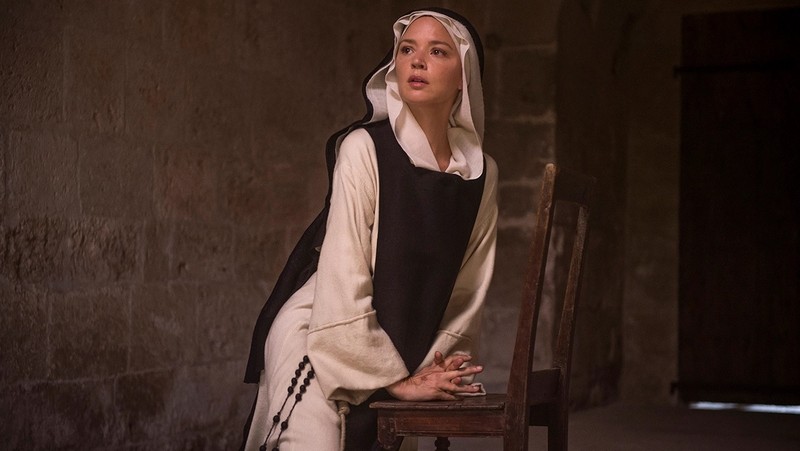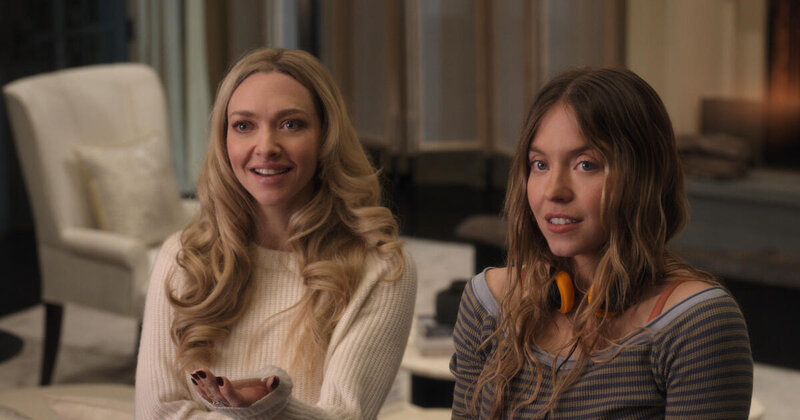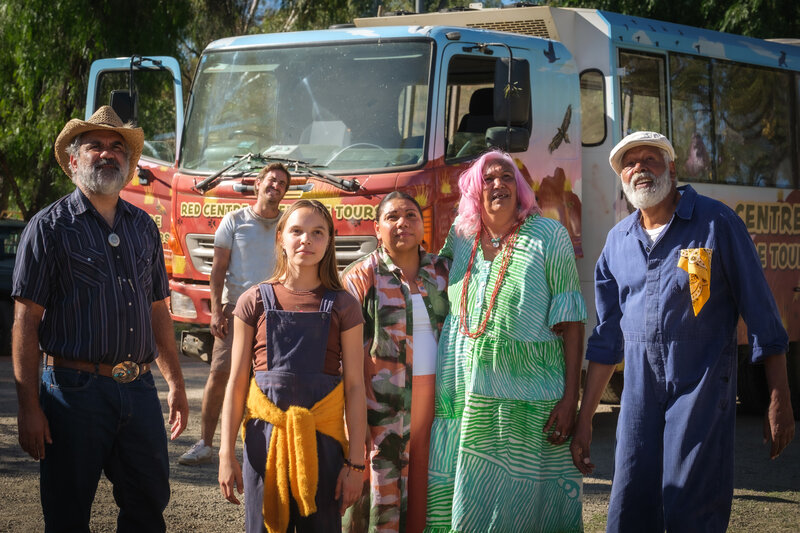They don’t make many movies about lesbian nuns these days. Thankfully provocative Dutch auteur Paul Verhoeven is here to fill in this cinematic void. Verhoeven’s films have often courted controversy – from the sexy police thriller Basic Instinct through to the lurid and trashy Showgirls. Verhoeven has always been something of a subversive and provocative filmmaker obsessed with themes of spirituality, sexuality and violence. And Benedetta, his latest drama combining these elements, is sure to offend many.

Benedetta is adapted from Judith C Brown’s 1985 non-fiction book Immodest Acts: The Life of a Lesbian Nun in Renaissance Italy, which documented the fascinating story of Sister Benedetta Carlini, the infamous Abbess of the Convent of The Mother of God in the seventeenth century. The film could have been mere exploitation. But here Verhoeven and co-writer David Birke are more interested in looking at the hypocrisy and misogyny, the corruption and the abuse of power by the Catholic Church in medieval Europe. With its heady and melodramatic mix of religion and sex and debauchery Benedetta may also invite comparisons to Ken Russell’s controversial 1971 drama The Devils. Original screenwriter Gerard Soetman, a longtime collaborator of Verhoeven’s, apparently walked away from the project because he thought it was too overtly sexual.
When the film opens, the orphaned Benedetta enters into a convent in the rural town of Pescia at the age of nine after her wealthy father does a deal with the stern head nun (Charlotte Rampling). Eighteen years later Benedetta (played by Virginie Efira, from Verhoeven’s 2016 drama Elle) is now comfortable with her life of religious piety and devotion and the routine of life in the convent.
Benedetta experiences miracles and has erotic dreams featuring a naked Jesus, and she also exhibits stigmata on her head and hands which is taken as a sign of her deep religious devotion. But the arrival of Bartolomea (Daphne Patakia) the abused daughter of a local shepherd soon turns her life upside down. Benedetta feels a strong and immediate attraction towards the rebellious and sexually abused Bartolomea who is assigned to look after her. Before too long the two are steaming up their shared cell within the convent. Because of her visions and the stigmata, Benedetta is soon promoted to the position of Abbess, displacing the long time Mother Superior, who becomes plain Sister Felicita. She enjoys the trappings of power that come with the privileged position.
However, the vindictive Felicita spies on the two women through a spy hole she has created in the wall to her cell, and then reports their carnal behaviour to the papal Nuncio (Lambert Wilson) who journeys to the convent to investigate. He brings with him some assistants who are well versed in the arts of torture to help him get at the truth. Felicita travels to Florence to seek intervention and have Benedetta removed as head of the convent and executed. But Europe is in the grip of the black plague. Benedetta’s promises that she can protect the locals from the disease lead to mass hysteria when the plague reaches this supposedly isolated and protected community in northern Italy, spreading fear.
Efira gives a brave, uninhibited and committed performance as the sexually voracious and hungry Benedetta. She embraces the explicit demands of the role with much the same enthusiasm as Elizabeth Berkley tackled her role in Showgirls. Rampling brings gravitas and a wounded pride and a cold and icy demeanour to her performance as the head nun, who grows increasingly distrusting of Benedetta. Verhoeven lacks subtlety, and there are some quite raw and explicit sex scenes as the relationship between Benedetta and Bartolomea becomes more intimate. They have been tastefully composed though by cinematographer Jeanne Lapoirie (Eastern Boys).
Benedetta features some great production design from Katia Wyszkop and the period detail reeks of authenticity. The film has been nicely shot by Lapoirie, who makes good use of the dimly lit interiors of the convent to give the material a claustrophobic edge. Production on Benedetta was delayed due to Verhoeven’s health problems in 2018. Verhoeven’s regular editor Job ter Burg (Black Book) finished much of the post-production process while Verhoeven was recovering.
Greg King
Other reviews you might enjoy:

Greg King has had a life long love of films. He has been reviewing popular films for over 15 years. Since 1994, he has been the film reviewer for BEAT magazine. His reviews have also appeared in the Herald Sun newspaper, S-Press, Stage Whispers, and a number of other magazines, newspapers and web sites. Greg contributes to The Blurb on film





